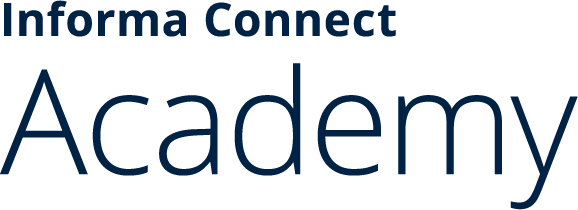Join our mailing list!
Unlock exclusive discounts, stay updated with new courses, and elevate your learning experience.
Informa Connect Academy
Over the past three decades, Informa Connect has been recognised as an expert training partner for industry professionals.
Informa Connect Academy strengthens our commitment to learning and provides even more opportunities for ambitious individuals and organisations to access world-class training.
Exceptional training across diverse sectors by a faculty of renowned instructors.
We are committed to excellence in education and ensuring that you have all the support you need to succeed in your chosen career. We have decades of experience, and are constantly striving to create a learning environment that fosters growth, networking, and professional advancement.
An expert faculty
Our instructors are a team of international and regional industry experts, thought leaders, and practitioners, all with extensive experience in their respective fields.
Together, they bring a wealth of practical knowledge and industry expertise to your learning experience.
Across global locations
Wherever you are located, Informa Connect Academy gives you access to a world of opportunities.
Prepare to upskill for success by joining our courses in the United Kingdom, APAC and the Middle East – or study remotely with a wealth of online options.
With renowned partners
Informa Connect Academy training is offered in partnership with esteemed professional bodies and world-renowned educational institutions.
The partnerships we have developed will enrich your learning experience by offering you direct access to expertise and experience with a global perspective.
Specialist brands that are globally recognised
Informa Connect Academy is proud to be home to two industry-recognised training brands: Lloyd’s Maritime Academy and International Faculty of Finance.
Both are highly respected in their sectors for the calibre of their courses, breadth of syllabus and the academic qualifications they offer.
Lloyd's Maritime Academy
Your maritime career, on course
Providing a lifelong career pathway for maritime professionals
International Faculty of Finance
Unlock Your Financial Potential
Join elite academic education and training for banking and finance professionals
Even more...flexibility: our training formats
Open Enrolment Courses
We offer a comprehensive and flexible learning experience, allowing you to join our courses in person or live – digitally, ensuring you never miss a valuable learning opportunity again.
Study with Informa Connect Academy whether you are in the Middle East, UK, APAC or elsewhere, to advance your career and give your organisation a competitive edge.
Digital Learning Courses
Digital learning allows you to obtain any level of qualification from introductory certifications through to a full MBA from world-renowned universities.
Work full-time whilst studying, and benefit from the opportunity to network with like-minded individuals from across the world.
On Demand Courses
Many of the bestselling Lloyd's Maritime Academy Certificates are now available on-demand on our innovative e-learning platform.
On-demand courses give you complete control over your training experience.
Choose your course. Choose your preferred start date. Define the pace you would like to learn. Then simply access whenever and from wherever you are. Our platform gives you full control.
Customised Training Solutions
Informa Connect Academy learning solutions help organisations to design and deliver impactful training in multiple languages and formats, to suit every requirement.
We work globally with our clients to unlock potential across their entire organisation, ensuring they maintain a competitive edge and their people are empowered.
